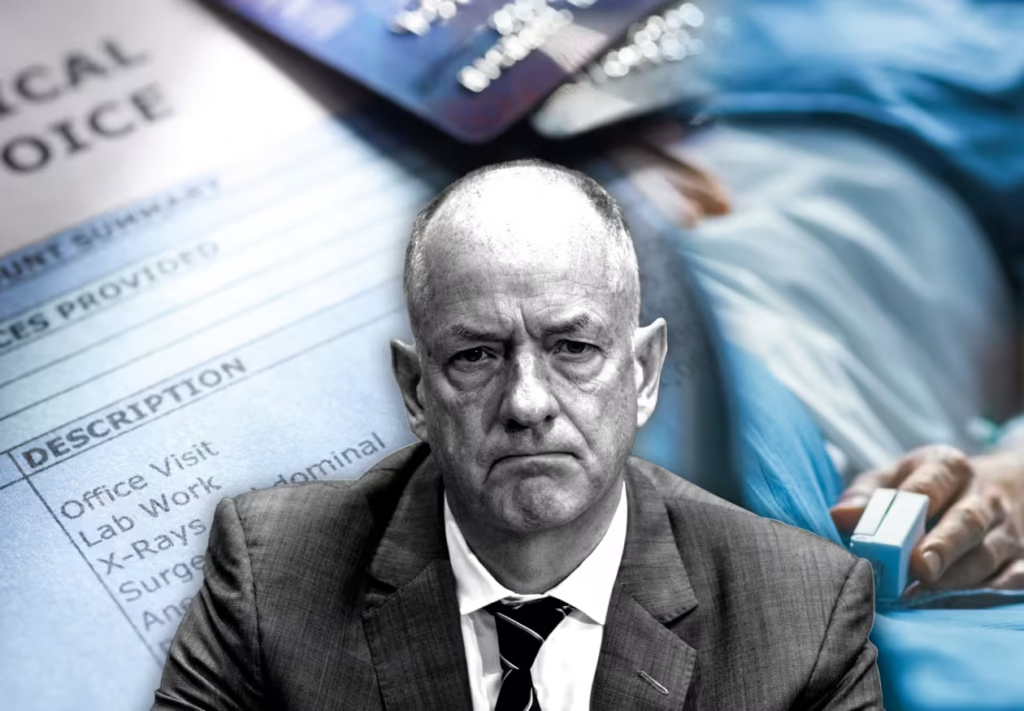The healthcare industry is constantly evolving, and at the forefront of this transformation stands the Healthcare CEO. This pivotal role combines leadership, vision, strategy, and compassion to steer healthcare organizations toward excellence. The responsibilities of a Healthcare CEO are multifaceted, requiring them to balance financial performance, operational efficiency, and patient-centered care while navigating the complexities of an ever-changing medical landscape. As the healthcare sector adapts to new technologies, regulations, and patient expectations, the role of the Healthcare CEO is becoming more critical than ever in shaping the future of medicine.
A Broad Scope of Responsibilities
The Healthcare CEO is the ultimate decision-maker in an organization, overseeing its operations and ensuring that the institution is meeting both its financial goals and its mission to provide high-quality care. This role is uniquely challenging because it requires a deep understanding of both business and healthcare. A CEO must possess strategic acumen, manage diverse teams, and foster partnerships with physicians, healthcare providers, and other stakeholders.
One of the primary responsibilities of a Healthcare CEO is to set the organization’s vision and strategic direction. In a world where medical advances, regulations, and patient needs are rapidly changing, CEOs must anticipate and plan for future healthcare trends. This includes implementing new technologies, such as artificial intelligence, telemedicine, and data analytics, to improve patient outcomes and optimize operations. These technological innovations are reshaping healthcare delivery and require a CEO to stay ahead of the curve in terms of both investment and integration.
Additionally, the CEO must ensure that the organization maintains a focus on quality patient care. As healthcare becomes increasingly patient-centered, there is a growing demand for transparent care practices, greater patient engagement, and an overall improvement in the patient experience. The Healthcare CEO is responsible for fostering an environment that prioritizes these values while also ensuring that the organization’s financial health is maintained.
Leadership and Decision-Making in Healthcare
Leadership is perhaps the most essential trait for a Healthcare CEO. These leaders must guide their organizations through periods of both stability and uncertainty. In times of crisis—such as during a public health emergency or organizational restructuring—a Healthcare CEO must act decisively and communicate effectively with all stakeholders. The COVID-19 pandemic, for instance, highlighted how crucial a healthcare leader’s response can be in times of crisis. Healthcare CEOs had to pivot rapidly, ensuring that their organizations could continue to deliver care while adapting to new safety protocols and changing patient needs.
Another important aspect of leadership is fostering a positive organizational culture. A Healthcare CEO must create an environment where staff members feel supported, valued, and motivated to provide high-quality care. This means addressing staff burnout, improving work-life balance, and investing in professional development opportunities for healthcare workers. Building strong relationships with physicians, nurses, and administrative staff is critical to maintaining a collaborative and efficient work environment.
Decision-making is another key responsibility for a Healthcare CEO. These decisions have far-reaching implications, not only for the financial stability of the organization but also for the quality of care that patients receive. A CEO must consider multiple factors when making decisions, from regulatory compliance to patient outcomes and technological investments. For example, choosing whether to implement an electronic health record (EHR) system or adopting a new patient management system requires careful analysis of the benefits, costs, and potential disruptions to the organization.
Navigating Healthcare Reform and Regulation
Healthcare is one of the most heavily regulated industries in the world. A Healthcare CEO must have a comprehensive understanding of healthcare laws, regulations, and policies to ensure compliance. The Affordable Care Act, the ongoing changes to Medicare and Medicaid, and new regulations around data privacy and cybersecurity all affect how healthcare organizations operate. CEOs are responsible for staying informed about these changes and adapting their organizations accordingly to avoid legal or financial repercussions.
Moreover, healthcare reform often brings about both opportunities and challenges. A Healthcare CEO must be able to navigate these shifts to improve care while ensuring that the organization remains financially viable. Whether it’s embracing value-based care, where healthcare providers are incentivized to improve outcomes rather than just increase volume, or adopting new reimbursement models, the Healthcare CEO must continuously assess how changes in healthcare policy impact their organization and position it for long-term success.
Embracing Innovation and Technology
Technology is rapidly transforming healthcare, and a Healthcare CEO must be at the forefront of this revolution. Innovations like telehealth, artificial intelligence (AI), machine learning, and blockchain technology are changing how healthcare is delivered and managed. A CEO must not only stay abreast of these advancements but also make strategic decisions on their implementation.
For example, telemedicine has become increasingly popular, particularly during the COVID-19 pandemic, and is expected to continue growing. As more patients opt for remote consultations, Healthcare CEOs must ensure that their organizations are equipped with the necessary infrastructure and resources to support telehealth services. AI and machine learning can also assist in predicting patient outcomes, diagnosing diseases, and improving operational efficiency. The Healthcare CEO’s role is to foster an environment where these innovations are embraced and integrated into everyday practice.
Conclusion: Leading the Future of Medicine
The role of the Healthcare CEO is essential in shaping the future of medicine. These leaders are tasked with balancing the often conflicting demands of financial stability, operational efficiency, and high-quality patient care. As healthcare continues to evolve, the CEO’s responsibilities will only increase in complexity. They must stay ahead of emerging trends, navigate regulatory changes, and implement cutting-edge technologies while maintaining a patient-centered approach.
A Healthcare CEO’s ability to lead effectively, foster innovation, and make strategic decisions will determine the success and sustainability of healthcare organizations in the future. By embracing change, fostering collaboration, and prioritizing patient outcomes, Healthcare CEOs will continue to guide their organizations through an ever-changing landscape, ensuring that the future of medicine is one that is both innovative and compassionate.


